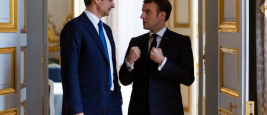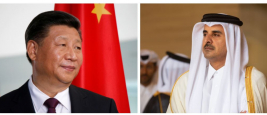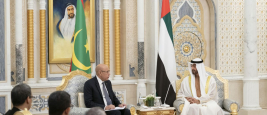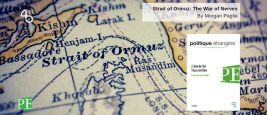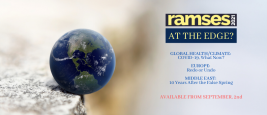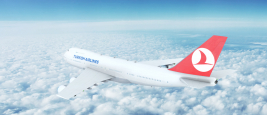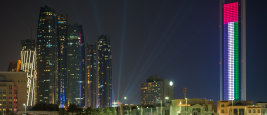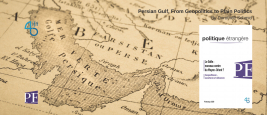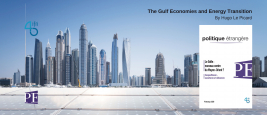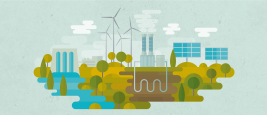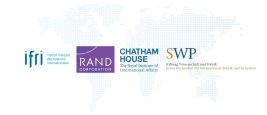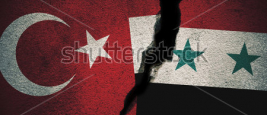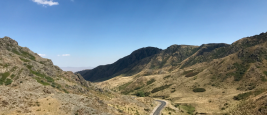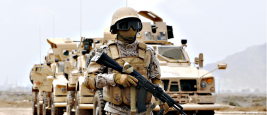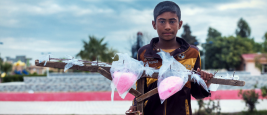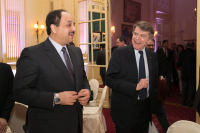The bilateral defense agreement signed by France and Greece in September 2021 confirms the strategic turn of the relationship between the two countries. It was already unveiled in 2020 when Paris supported Athens to counter Turkish maritime operations that France and Greece considered very...

Middle East / North Africa
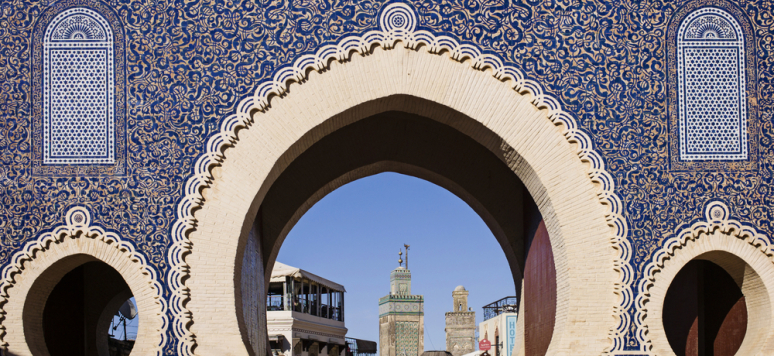
The Middle East and North Africa Programme at IFRI aims to provide expertise on the trends and developments in politics, societies and economies across the region.
The programme has the following objectives:
- Proposing a new approach towards the MENA region through an analysis of local, regional, and international dynamics with the potential to guide and influence new policies ;
- Highlighting the role of foreign powers which have traditionally been present in the region and analyzing the new role taken on by emerging countries ;
- Anticipating new directions and outlooks in each country;
- Interpreting risks and potentials and puting forward new templates for analysis.
The programme has built a dense network of researchers and experts who provide expertise on the MENA region and working together on a range of crosscutting themes.
Senior Research Fellow, Head of Ifri’s Türkiye and...
Research Fellow, Türkiye and Middle East Program
...Associate Research Fellow, Türkiye and Middle East...
Senior Advisor for North Africa and the Middle East
Research Interests:
- North Africa
- The Middle East
Associate Research Fellow, Türkiye and Middle East Program
...Associate research fellow, Turkey and Middle East Program
...Like its neighbors in the Arabian Peninsula, Qatar finds itself increasingly confronted with a difficult dilemma: while its economy is looking to the East, more specifically towards China, the security and stability of the country still depend on the United States.
The United Arab Emirates (UAE) has long-standing ties with African countries, but the implementation of a genuine Africa policy dates back only about 15 years.
In the event of a major conflict, Iran could decide to close the Strait of Hormuz, which would cause a global energy crisis.
RAMSES 2021. At the Edge?, written by Ifri's research team and external experts, offers an in-depth and up-to-date analysis of geopolitics in today’s world.
Turkey has undergone significant transformations since the Justice and Development Party (AKP) came to power in 2002, as illustrated by the notable growth of its airline industry. Turkish Airlines (THY) is the main company based in the country, and has...
Middle Eastern geopolitics is currently undergoing structural changes: the regional order is in transition in the aftermath of the Arab Spring that undermined authoritarian governance, and triggered the competition for power against a backdrop of American withdrawal.
The geopolitical shadow of the Gulf now extends far beyond the Middle East as a function the external dealings of Iran and the countries of the Arabian Peninsula.
The economies of the Persian Gulf are highly dependent on their petrol exports, particularly to Asia.
In the last decade, Jordan has been facing a resurgence in public discontent against harsh living conditions and the corruption of the regime.
Toward a Global Low Carbon Transition: What Sustainable Opportunities for Africa? Ifri-OCP Policy Center Roundtables
Despite its marginal contribution to the historical growth in greenhouse gas emissions, the African continent could be one of the most vulnerable to the adverse impacts of climate change.
QUAD 2018 Annual Meeting
Since 1983, the QUAD gathers every year, the SWP, RAND Corporation, Chatham House and Ifri.
Turkey and the Middle East: A New (Dis)Order in the Middle East: Stakes for Europe and Turkey Séminaire & Table ronde
Since the collapse of the Ottoman Empire in the aftermath of the World War I, efforts by both regional or international powers to build a sustainable regional order in the Middle East have failed. While some debate on the best conceivable order for the region, others argue that we should...
China’s Belt and Road – Towards Globalization with Chinese Characteristics? Ifri-OCP Policy Center Roundtables
In 2013, Chinese president Xi Jinping first unveiled his broad vision to develop regional connectivity and infrastructure across Eurasia that would later be officially named the Belt and Road Initiative (or yi dai yi lu, One Belt, One Road, or OBOR).
War in Yemen: Regional consequences of a protracted conflict Conference
Yemen has been shaken for several years by a war combined with an unprecedented humanitarian crisis. The 2011 “Yemenite Spring”, followed by the Houthi rebel militia’s coup of 2014 generated the conflict which took a regional dimension, entrenching the logic of the blocks:...
The Iraq after ISIS: a Military Victory with no Future? Conférence
Conference with Loulouwa Al Rachid, political Scientist, with particular emphasis on Iraq, currently member of the Research Program When Authoritarianism Fails In The Arab World (Wafaw)/International Relations Study Center (CERI)...
Iran after the Nuclear Deal: Open for Business? Les Mensuelles Ifri/Entreprises
These luncheon-debates are dedicated to corporate and individual benefactor members. By personal invitation only.
...
La politique étrangère du Canada, quelles réorientations en 2016?
Please find here all the substantive elements related to the conference held on April 27, which marks the launching of an axis of research on Canada.The morning started with a few introductory remarks by Thierry de Montbrial and the Honourable ...
Iraq since the fall of Mosul: a hyper-fragmented and hyper-contentious area
Conference with Loulouwa AL-RACHID, Middle-East Analyst, returning from a mission in Baghdad for the International Crisis Group. The conference will be held in French.
Dinner-debate with Khaled bin Mohamed AL ATTIYAH, Minister of Foreign Affairs of Qatar
Debate chaired by Thierry de Montbrial, Executive Chaiman, Ifri.
Aucun résultat









